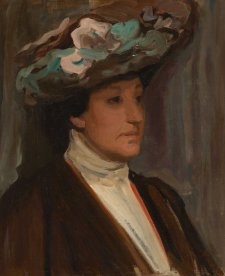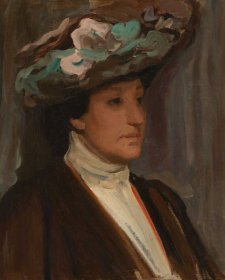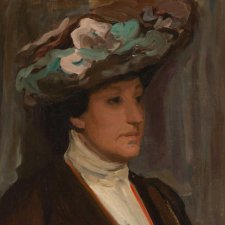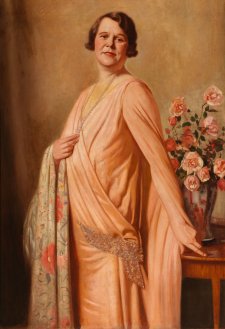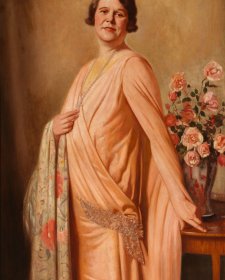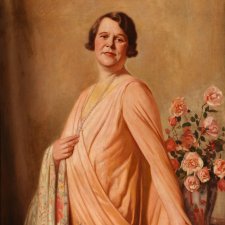A question lately cropped up in connection with Madame Melba as to whether fame and celebrity are not essentially the same thing. My feeling is that they are different. The Oxford English Dictionary is undecided: famous people are “celebrated in fame or public report; much talked about, renowned”, while persons of celebrity are “much extolled or talked about; famous, notorious”. Nowadays I think there is a more nuanced distinction to be made, and indeed emphasized by a National Portrait Gallery.
Those whom the media now call celebrities are not necessarily hugely or even genuinely famous―in other words immediately recognizable to millions―possibly because so many people aspire to that dubious condition. Their tenure on reality TV, for example, may often conform to the Andy Warhol measure of fifteen minutes, if that. And certainly not all famous people could ever be described as celebrities, in the current sense of the word. That Melba, however, was both extremely famous and almost the embodiment of musical celebrity cannot be disputed.
With people such as Sarah Bernhardt, Anna Matveyevna Pavlova, and Mrs. Langtry, in the last decade of the nineteenth century Melba helped to create our modern concept of a celebrity, extending in her case far beyond the hot smoky footlights of the Royal Opera House, Covent Garden, where for years she had a dedicated dressing-room, and held the only key (just to make sure). In 1904 Melba began recording with an eye to posterity and commercial advantage, eventually producing in the drawing room of her lavish house in Great Cumberland Place over 100 records for the fledgling Gramophone Company. For many years the directors of the Gramophone Company freely acknowledged Melba’s contribution to their shareholders’ success—and not the other way around.




